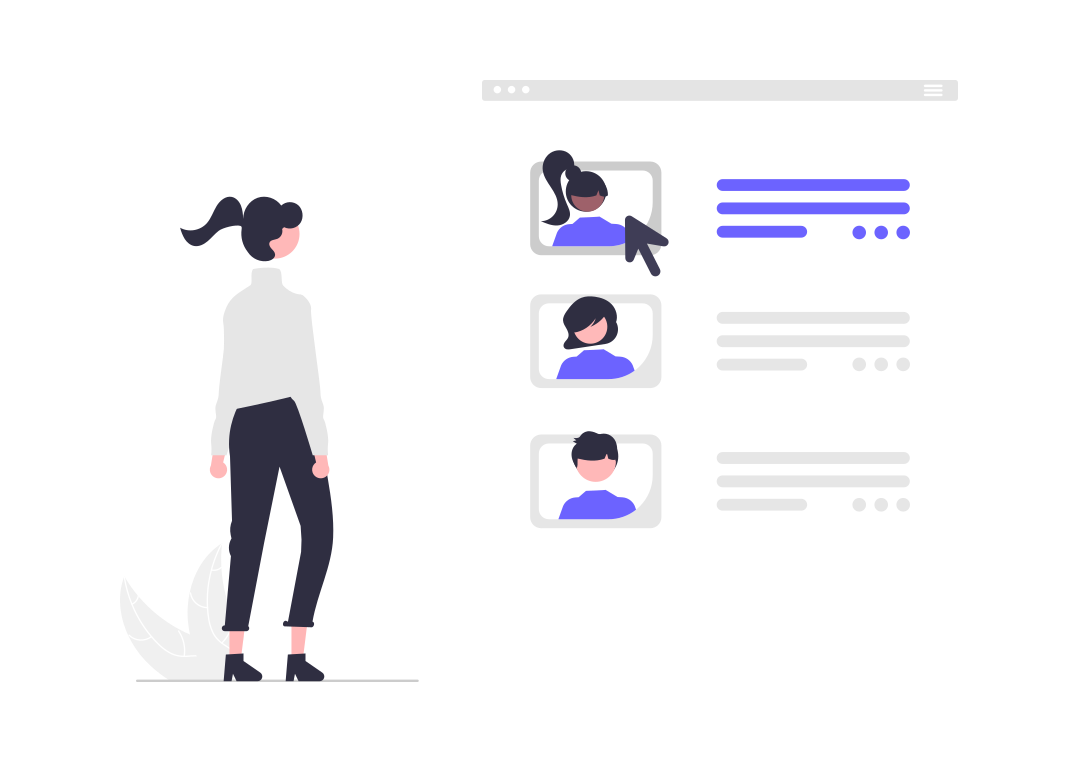In today’s fast-paced digital landscape, understanding and reaching your target audience with precision is more crucial than ever. The key to this lies in effective customer segmentation—breaking down your broader audience into distinct groups based on shared characteristics. Traditional segmentation methods, while useful, often fall short in delivering the deep insights needed for truly personalized marketing. Enter Artificial Intelligence (AI), a game-changer that is transforming customer segmentation into a more dynamic, accurate, and powerful tool for marketers.
The Evolution of Customer Segmentation
Customer segmentation has been a cornerstone of marketing for decades, allowing businesses to tailor their messaging and product offerings to specific audience segments. Traditionally, segmentation was based on demographic factors like age, gender, income, or geographic location. While these factors are important, they only scratch the surface of who your customers are and what drives their behavior.
The limitations of traditional segmentation methods become apparent when considering the complexity of consumer behavior today. With vast amounts of data generated from various online and offline interactions, marketers are challenged to process and analyze this data to uncover actionable insights. This is where AI steps in, offering capabilities far beyond the reach of manual methods.
How AI Transforms Customer Segmentation
AI revolutionizes customer segmentation by analyzing large volumes of data at lightning speed, uncovering patterns and correlations that humans might miss. Here’s how AI enhances customer segmentation:
1. Data Processing at Scale
AI can process vast amounts of data from multiple sources—social media, website interactions, purchase history, CRM systems, and more. This ability to synthesize data from diverse channels allows for a more holistic understanding of each customer, leading to more refined segments.
2. Behavioral Segmentation
Traditional methods often rely on static data like demographics, but AI enables dynamic segmentation based on real-time behavior. By analyzing how customers interact with your brand across different touchpoints, AI can create segments that reflect current interests and intentions, rather than relying on past behaviors alone.
3. Predictive Analytics
AI’s predictive capabilities are one of its most powerful tools. By analyzing historical data and identifying patterns, AI can predict future behaviors and trends. This allows businesses to not only segment customers based on current data but also anticipate future needs, enabling proactive marketing strategies.
4. Hyper-Personalization
With AI-driven segmentation, marketers can move beyond broad categories and target customers on a more individual level. AI enables hyper-personalization by tailoring content, offers, and experiences to each customer based on their unique profile. This level of personalization is critical in today’s market, where consumers expect brands to understand and cater to their specific needs.
The Benefits of AI-Driven Segmentation
The integration of AI into customer segmentation offers numerous benefits that enhance the effectiveness of marketing strategies:
1. Enhanced Precision
AI’s ability to process and analyze complex data sets leads to more precise segmentation. This means that marketing efforts are directed at the right audience with the right message, reducing waste and increasing conversion rates.
2. Agility and Adaptability
AI-driven segmentation is not static. It adapts to new data, allowing businesses to stay agile and responsive to changing customer behaviors and market conditions. This real-time adaptability ensures that your marketing strategies are always relevant and effective.
3. Improved ROI
By targeting the most relevant segments with personalized messaging, AI helps increase customer engagement, loyalty, and ultimately, revenue. The precision of AI-driven segmentation leads to better allocation of marketing resources, improving the overall return on investment (ROI).
4. Scalability
Traditional segmentation methods can be time-consuming and resource-intensive. AI automates much of this process, allowing for segmentation at scale without compromising on accuracy or depth of insight. This scalability is essential for businesses looking to grow and expand their marketing efforts.
Overcoming Challenges with AI in Segmentation
While AI offers transformative benefits, it’s important to address potential challenges:
1. Data Quality
AI is only as good as the data it processes. Ensuring that your data is accurate, complete, and up-to-date is crucial for effective AI-driven segmentation. Businesses must invest in data management practices that support high-quality data inputs.
2. Integration with Existing Systems
Integrating AI with existing marketing and CRM systems can be challenging. However, with the right approach and tools, businesses can ensure seamless integration, maximizing the value of AI in their segmentation efforts.
3. Privacy Concerns
As AI delves deeper into customer data, privacy concerns become more prominent. Businesses must navigate these concerns carefully, ensuring compliance with data protection regulations and maintaining customer trust through transparent practices.
The Future of Customer Segmentation with AI
The future of customer segmentation is undoubtedly intertwined with the advancement of AI. As AI technologies continue to evolve, we can expect even more sophisticated segmentation methods that go beyond traditional boundaries. AI will enable marketers to understand their customers at an unprecedented level of detail, leading to more meaningful and impactful engagements.
In conclusion, AI and customer segmentation are indeed a match made in marketing heaven. By leveraging AI’s capabilities, businesses can achieve a deeper understanding of their audience, deliver personalized experiences, and ultimately, drive greater success in their marketing efforts. As AI continues to evolve, so too will the possibilities for customer segmentation, opening new doors for innovation and growth in the marketing world.


